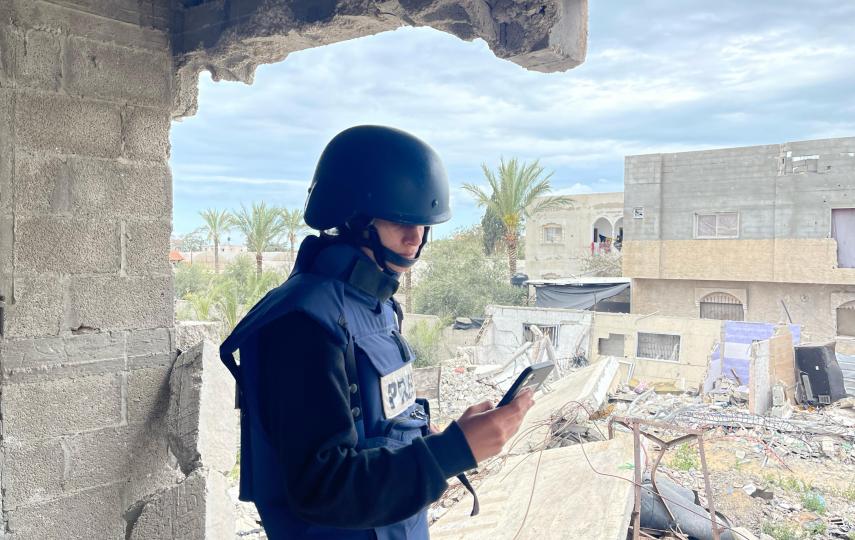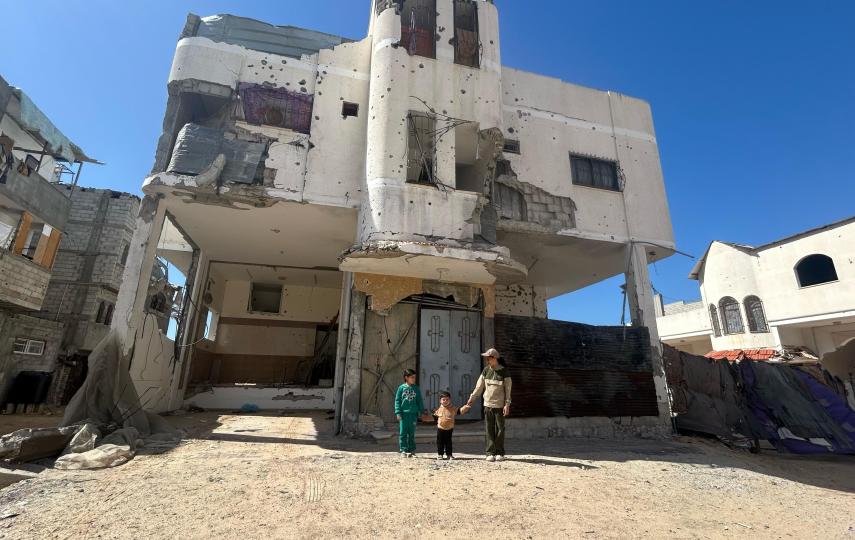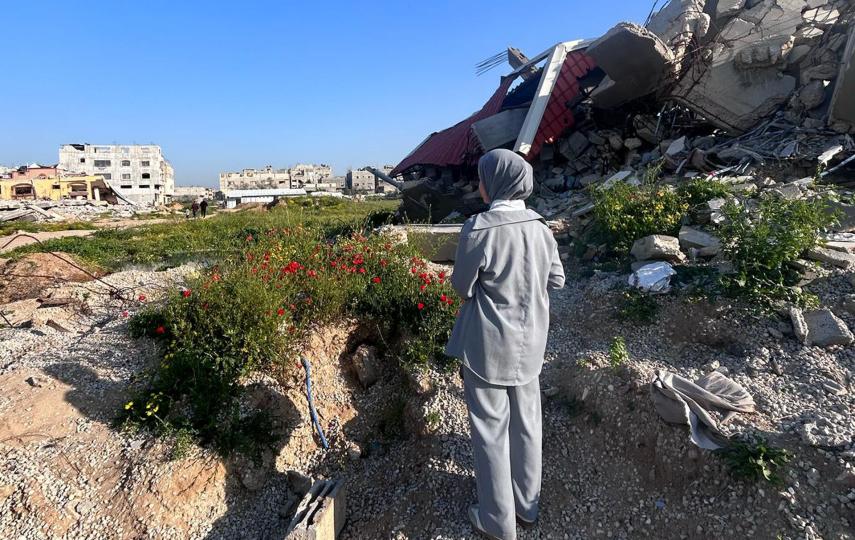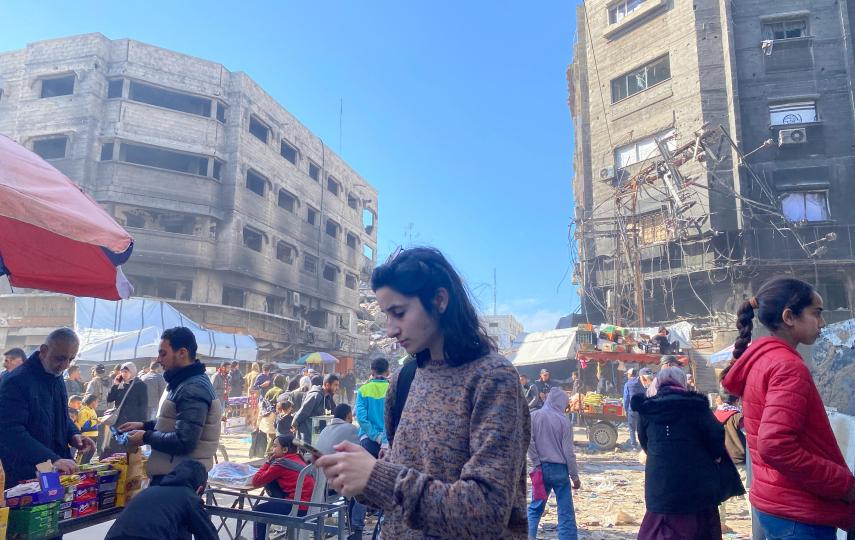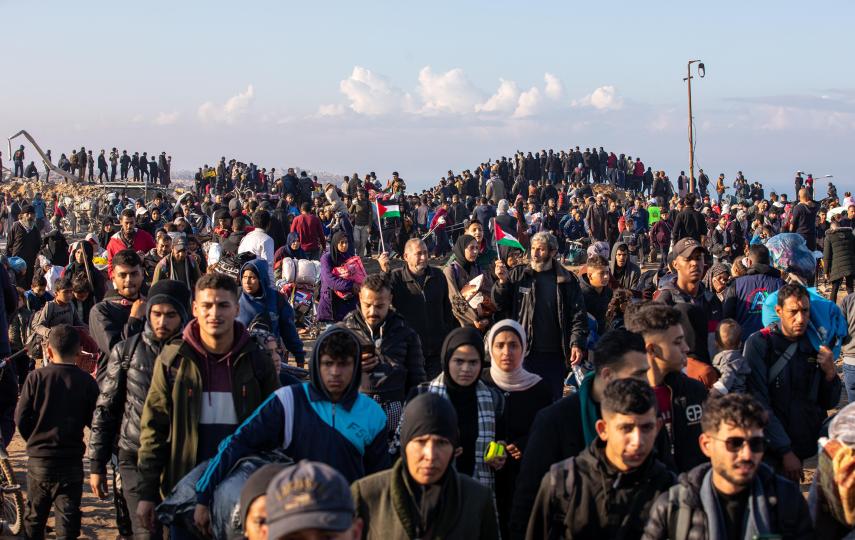I am starting to write this as I pack my things again. For the second time since the war began, I am being forcibly displaced from my home. This time it feels more humiliating and scarier, because I already know what it feels like to be a stranger, to be left behind, to suffer. I know the feeling of helplessness and not knowing what will happen next.
During the ceasefire earlier this year, I finally returned to my family’s home in al-Tuffah, a neighbourhood in the northeastern part of Gaza City, after 15 months of forced displacement in Deir al-Balah. For 40 days, I tried to believe in home again. I swept the floors. I made coffee. I sat on the front step and let my body remember what it meant to feel stillness.
But healing needs time. And in Gaza, we are never given time.
After 58 days of uncertain reprieve, Israel decided to resume its war on 18 March, and the terror returned. We sat in our house following the news of renewed destruction and death late into the night. Inevitably, the new evacuation orders came. More than 20 have been issued since 18 March. Along with unilaterally declared “no-go zones”, they have marked nearly 70% of Gaza’s territory as areas forbidden to Palestinians – including where our home is located in al-Tuffah.
We learned about the new evacuation order from a Facebook post. Initially, we said we wouldn’t leave. We wanted to stay. But a week later, the Israeli military dropped flyers on our neighbourhood warning everyone to evacuate now. Then, the relentless bombing and airstrikes began.
We hurriedly packed what little clothes we could and some pillows to sleep on and drove our car, with humiliation, to the unknown.
When the world’s attention moves elsewhere
What hurts the most isn’t just losing your home. It’s never being allowed the space to feel. I didn’t get the time to cry over what I lost the first time. My family members and friends who have been killed. My education. My connection to this land. I didn’t get to breathe. Now, as I flee again, I don’t even know where I’m going. No one does. We are not just losing homes – we’re losing our bearings, our pasts, our futures.
I’ve spoken to mothers who sleep with one hand wrapped around their remaining children, and another around photos of the ones they buried under rubble.
The war is raging more violently than ever before. There is more blood. More loss. More hunger. More famine. As a journalist, I cover the humanitarian side of this war – the people, the suffering, the things that happen when the world’s attention moves elsewhere.
I’ve spoken to mothers who sleep with one hand wrapped around their remaining children, and another around photos of the ones they buried under rubble. I’ve spoken to elderly men who carry the keys to homes that were destroyed three wars ago. And I’ve spoken to children who think war is normal, because it’s all they’ve ever known.
This war has not only destroyed our homes. It has also torn apart our families, our mental health, and our dignity. I have witnessed the suffering firsthand. Mothers mourning their children, fathers unable to protect their families, and children bearing the physical and emotional scars.
One story that haunts me is that of nine-year-old Zain Ziara. A bomb took one of his legs and severely injured the other. Doctors say he needs immediate surgery abroad to save his remaining leg. Zain told me, “I just want to play like other kids. I don’t want to see my mother crying while she’s carrying me from my bed to the bathroom.”
Zain is just one of an estimated 12,000 people in need of medical evacuation. Israel has only let just over 120 leave since imposing the total blockade. There is also a fear that if people do leave, Israel will not let them return to Gaza. Not now. Not ever.
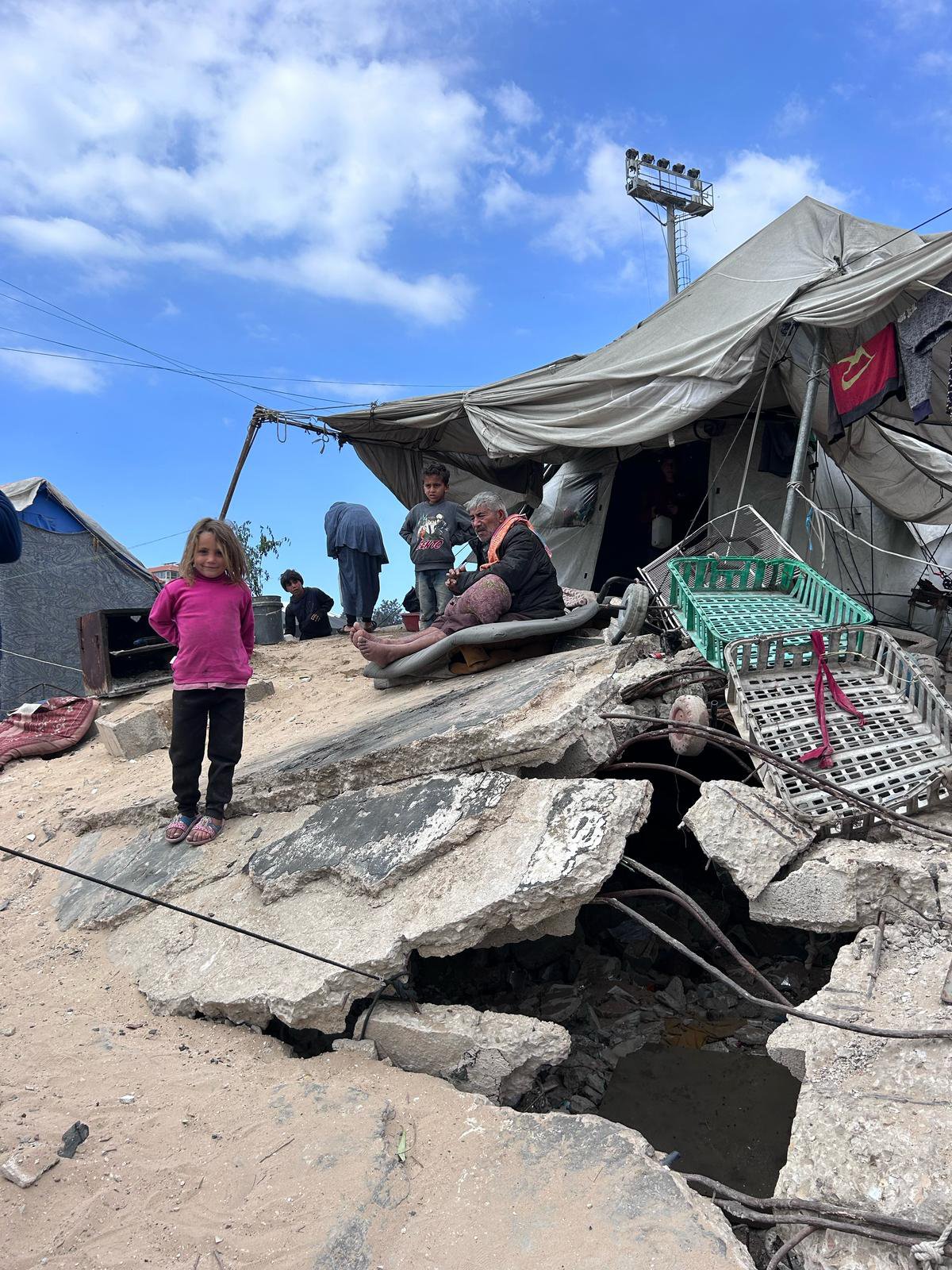
Another father shared his harrowing experience. Living in a tent within a crowded camp, he recounted a night when an Israeli tank shell struck nearby. “I was sleeping with my kids between my arms,” he said. “Suddenly, we saw fire and heard the sound of a bomb. My children were shivering. I fear that next time it will be our turn.”
These are not isolated incidents. The Israeli blockade, imposed since 2 March, has led to severe shortages of food, water, and medical supplies. The UN’s World Food Programme has run out of supplies to deliver. It is only a matter of time before people begin to die from hunger again.
The war has created a generation of amputees, especially among children. The largest cohort of child amputees in modern history, according to the UN. This is not just a physical loss but a psychological one, stripping away their childhood and dreams.
The conditions in the camps are deplorable. Families live amidst piles of garbage, with the stench permeating the air. Insects and worms infest the area, and the tents offer no protection from the elements or the ongoing bombardment. Mothers struggle to keep their children safe and healthy in these inhumane conditions.
None of this is new. It has been going on for a year and a half. It has only been getting worse and more severe by the day. And through all of this, we’re expected to keep moving, keep running, keep finding new corners to hide in. I don’t know how many more corners are left.
Refusing to disappear
I am now displaced and living with my family at my sister’s house in another neighbourhood of Gaza City, where I share one room with my younger sister, my mother, and my father.
The situation is worse than ever. The fighting and airstrikes are all over the Strip. Literally everywhere. We spend our time praying to survive to the next day, and that if we are targeted we die immediately, because we know the suffering that the injured are enduring. Other than that, we search for food we can afford and we sleep at night, praying and shivering.
I don’t want to report anymore. I want to scream. I want to cry. I want to sleep without dreaming of explosions. But I keep going because I promised myself this: I will not let Gaza disappear quietly.
Every time I go out to report, my mother prays for my safety. I can see the fear in her eyes because she knows what happens to journalists in Gaza.
Some days, I don’t want to report anymore. I want to scream. I want to cry. I want to sleep without dreaming of explosions. But I keep going because I promised myself this: I will not let Gaza disappear quietly. I will not let these stories be forgotten.
Israel’s strategy seems aimed at making life in Gaza unbearable, pushing us to abandon our homeland. The forced evacuations, the destruction of infrastructure, and the denial of basic necessities are all tactics to erode our connection to this land. But despite the suffering, we remain steadfast.
We do not hate our land. We hate what is being done to it. We do not want to leave. We want to live. And despite everything, we are still here. Still walking. Still speaking. Still documenting. Still refusing to disappear.
Because Gaza matters. Because Zain, the young amputee I met, matters. Because every mother who has held her child’s mutilated body in her hands deserves more than silence. And because, if we do not tell the truth, the world will pretend this never happened.
Edited by Eric Reidy.

